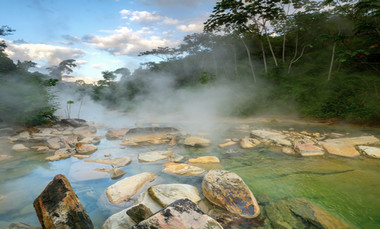
Scientists are testing how tropical plants cope with rising temperatures, using heated forest plots, geothermal “boiling rivers,” and even Biosphere 2’s giant greenhouse. Research shows some species can adjust their photosynthesis to withstand higher heat, while others falter—especially slow-growing, old-growth trees. Because tropical forests store huge amounts of carbon and support incredible biodiversity, their resilience or collapse under climate change could have global consequences.
https://www.science.org/content/article/tropical-forests-are-heating-can-they-cope
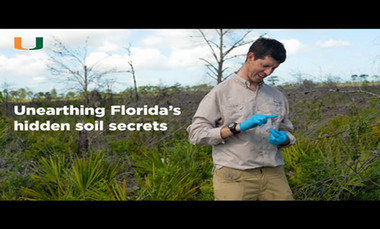
At the Archbold Biological Station in Central Florida, University of Miami researchers are exploring the hidden world of the Florida scrub's unique ecosystem—its soil microbiome. Their work focuses on understanding how intense storms impact vital organisms such as bacteria and fungi, which are critical for nutrient cycling and the ecosystem’s overall health.
https://www.youtube.com/watch?v=0C3tgShytao
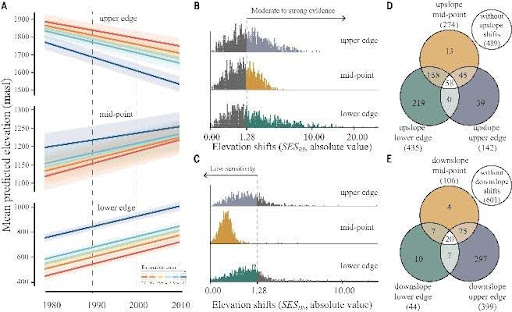
A study published in Science reveals that since 1979, plant species in Mesoamerican cloud forests have shifted their elevation ranges upslope by an average of 1.8 to 2.7 meters per year. This movement is primarily due to the retreat of less thermophilic montane species, driven by climate change and deforestation. The findings highlight the vulnerability of cloud forests under global change and the urgency of enhancing species response monitoring.
https://www.science.org/doi/10.1126/science.adn2559
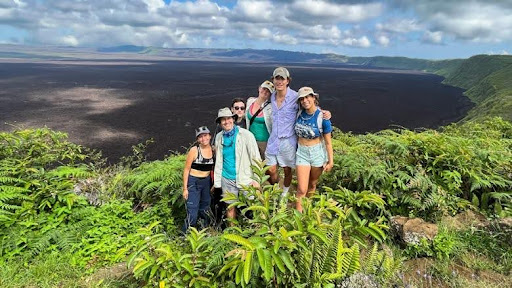 The University of Miami's UGalapagos Biology program offers undergraduates a unique, semester-long study abroad experience in Ecuador and the Galápagos Islands. Participants live with host families in Quito and the Galápagos, engaging in immersive courses focused on biology and field research. The program includes hands-on experiences such as swimming with sea lions, feeding hummingbirds in the Andes, hiking volcanoes, snorkeling along Pacific reefs, and collecting field data in the Amazon rainforest. Faculty from both the University of Miami and the Universidad San Francisco de Quito lead the curriculum, providing students with a comprehensive understanding of diverse ecosystems. Applications for the upcoming fall semester are due by March 1.
The University of Miami's UGalapagos Biology program offers undergraduates a unique, semester-long study abroad experience in Ecuador and the Galápagos Islands. Participants live with host families in Quito and the Galápagos, engaging in immersive courses focused on biology and field research. The program includes hands-on experiences such as swimming with sea lions, feeding hummingbirds in the Andes, hiking volcanoes, snorkeling along Pacific reefs, and collecting field data in the Amazon rainforest. Faculty from both the University of Miami and the Universidad San Francisco de Quito lead the curriculum, providing students with a comprehensive understanding of diverse ecosystems. Applications for the upcoming fall semester are due by March 1.
https://news.miami.edu/stories/2025/02/ugalapagos-program-offers-a-window-into-wildlife.html
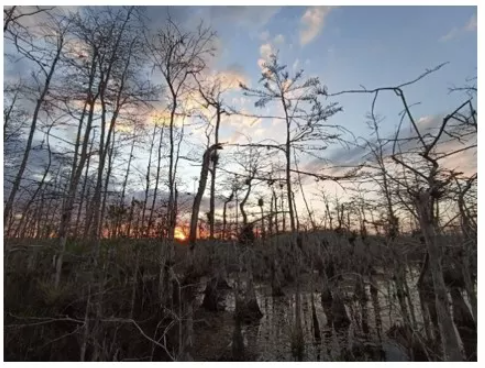 Researchers from UM working at Big Cypress National Preserve employed dendrochronology to study the growth patterns and ages of dominant tree species—pond cypress, bald cypress, and slash pine. They discovered that pond cypress trees, despite their smaller size, were often the oldest, with some growing as slowly as 0.06 inches per year. The study also revealed that water levels significantly influence the growth rates of all three species, underscoring the critical role of hydrology in this freshwater swamp ecosystem.
Researchers from UM working at Big Cypress National Preserve employed dendrochronology to study the growth patterns and ages of dominant tree species—pond cypress, bald cypress, and slash pine. They discovered that pond cypress trees, despite their smaller size, were often the oldest, with some growing as slowly as 0.06 inches per year. The study also revealed that water levels significantly influence the growth rates of all three species, underscoring the critical role of hydrology in this freshwater swamp ecosystem.
https://www.nps.gov/articles/000/bicy_nrca_2025.html
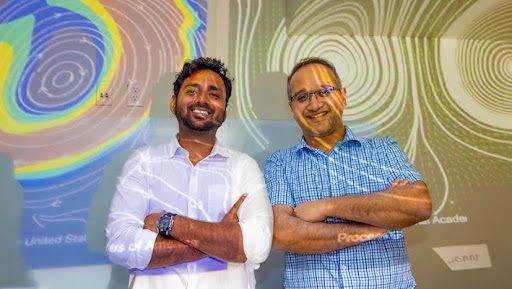
Researchers at the University of Miami have uncovered that left-right asymmetry in animal bodies originates from physical cell movements during early embryonic development, rather than solely from genetic factors. By studying chick embryos with fluorescent microscopy, they observed that cell motions exhibit asymmetry, offering new insights into organ positioning and potential implications for understanding birth defects.
https://news.miami.edu/stories/2025/02/illuminating-the-beginnings-of-animal-development.html






 The University of Miami's UGalapagos Biology program offers undergraduates a unique, semester-long study abroad experience in Ecuador and the Galápagos Islands. Participants live with host families in Quito and the Galápagos, engaging in immersive courses focused on biology and field research. The program includes hands-on experiences such as swimming with sea lions, feeding hummingbirds in the Andes, hiking volcanoes, snorkeling along Pacific reefs, and collecting field data in the Amazon rainforest. Faculty from both the University of Miami and the Universidad San Francisco de Quito lead the curriculum, providing students with a comprehensive understanding of diverse ecosystems. Applications for the upcoming fall semester are due by March 1.
The University of Miami's UGalapagos Biology program offers undergraduates a unique, semester-long study abroad experience in Ecuador and the Galápagos Islands. Participants live with host families in Quito and the Galápagos, engaging in immersive courses focused on biology and field research. The program includes hands-on experiences such as swimming with sea lions, feeding hummingbirds in the Andes, hiking volcanoes, snorkeling along Pacific reefs, and collecting field data in the Amazon rainforest. Faculty from both the University of Miami and the Universidad San Francisco de Quito lead the curriculum, providing students with a comprehensive understanding of diverse ecosystems. Applications for the upcoming fall semester are due by March 1. Researchers from UM working at Big Cypress National Preserve employed dendrochronology to study the growth patterns and ages of dominant tree species—pond cypress, bald cypress, and slash pine. They discovered that pond cypress trees, despite their smaller size, were often the oldest, with some growing as slowly as 0.06 inches per year. The study also revealed that water levels significantly influence the growth rates of all three species, underscoring the critical role of hydrology in this freshwater swamp ecosystem.
Researchers from UM working at Big Cypress National Preserve employed dendrochronology to study the growth patterns and ages of dominant tree species—pond cypress, bald cypress, and slash pine. They discovered that pond cypress trees, despite their smaller size, were often the oldest, with some growing as slowly as 0.06 inches per year. The study also revealed that water levels significantly influence the growth rates of all three species, underscoring the critical role of hydrology in this freshwater swamp ecosystem. 
